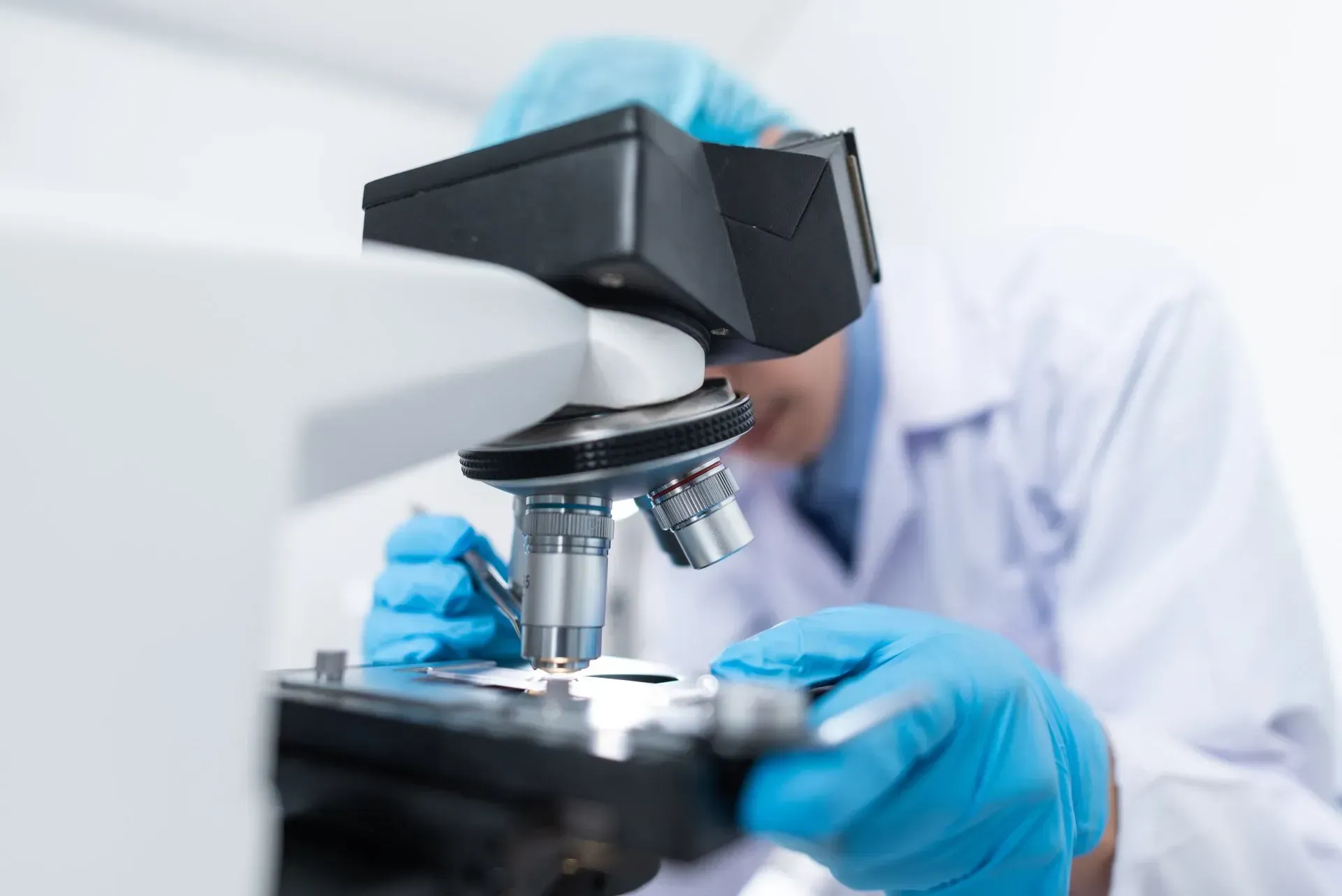Driving MedTech Innovation in Ireland: The Crucial Role of R&D
Ireland has steadily risen to become a global powerhouse in the MedTech industry. Over the past few decades, the Emerald Isle has cultivated a thriving ecosystem of medical technology companies, attracting both multinational giants and innovative startups. As a Life Sciences recruitment agency deeply involved in this dynamic sector, Mason Alexander is keenly aware of the critical role that Research and Development (R&D) plays in propelling SMEs and startups to the forefront of medical innovation. This blog explores the flourishing MedTech landscape in Ireland, the significance of R&D, and why Ireland is an ideal hub for MedTech enterprises.
Ireland's MedTech Industry: A Snapshot
Ireland’s journey to becoming a MedTech leader began in the 1990s when numerous US medical multinationals relocated to the country, enticed by favourable tax rates and a pro-business environment. Today, Ireland hosts around 450 MedTech companies employing approximately 42,000 people, and delivering a €12.6 billion MedTech export industry that reaches over 100 countries. This sector is not just a cornerstone of the Irish economy but also a beacon of innovation, with 18 of the world’s top 25 MedTech companies, including industry titans like Pfizer, Boston Scientific, and Johnson & Johnson, establishing a presence here.
Moreover, the MedTech sector in Ireland is not solely reliant on foreign investment. Approximately 80% of MedTech companies in Ireland are indigenous SMEs, showcasing the strength and innovation of local enterprises. These companies are supported by a robust framework of government initiatives, such as the 25% R&D tax credit, which incentivises innovation and development.
The Critical Role of R&D
R&D is the lifeblood of the MedTech industry, driving advancements that improve patient outcomes, streamline healthcare delivery, and reduce costs. For SMEs and startups, a strong R&D function is essential for survival and growth. It allows these companies to innovate rapidly, adapt to changing market needs, and maintain a competitive edge.
Innovation and Product Development
One of the key drivers of Ireland's MedTech success is its emphasis on innovation and product development. R&D activities in Ireland span a wide range of cutting-edge fields, from biodegradable implants and 3D-printed medical devices, to revolutionary cancer treatments and advanced diagnostic tools.
For example, the University of Galway's Biomend project is pioneering the use of biodegradable materials for medical implants, potentially reducing long-term complications. Meanwhile, Dublin City University (DCU) is making strides in cancer treatment with its development of Tri-Click Thiophene, a compound that targets and destroys cancer DNA.


The Importance of Hiring the Right R&D Employees
In the fast-paced MedTech industry, hiring the right R&D employees is paramount to driving innovation and staying competitive. Skilled R&D professionals bring not only technical expertise but also creativity and problem-solving abilities that are essential for developing cutting-edge medical devices and solutions. These employees are the lifeblood of a company's innovation pipeline, translating complex scientific research into practical applications that can improve patient outcomes and create market-leading products. In Ireland, where the MedTech sector is booming, attracting and retaining top R&D talent is crucial for SMEs and startups to leverage the full potential of their R&D investments, ensuring they remain at the forefront of technological advancements and industry trends.
Collaboration and Knowledge Sharing
The collaborative spirit within Ireland’s MedTech sector cannot be overstated. The Irish MedTech Association's new strategy aims to drive collaboration across the ecosystem, uniting startups, multinational corporations, investors, and key opinion leaders. This collaborative environment fosters knowledge sharing and the dissemination of best practices, accelerating innovation and ensuring that even the smallest startups have access to the resources and expertise needed to thrive.


Government Support and Incentives
Ireland's government has played a pivotal role in nurturing the MedTech industry. With a history of attracting significant foreign direct investment (FDI), the government has implemented various initiatives to support R&D activities. The 25% R&D tax credit and the competitive corporate tax rate of 12.5% for smaller companies provide substantial financial incentives for MedTech companies to base their R&D operations in Ireland.
Additionally, Ireland's participation in
Horizon Europe’s research and innovation program has further bolstered its R&D capabilities. Irish companies have secured substantial funding through the European Innovation Council (EIC) Accelerator Programme, enabling startups like Luminate Medical, Hooke Bio, BioSimulytics, and Celtic Biotech to push the boundaries of medical science and technology.
Why Ireland?
Ireland's MedTech sector benefits from several unique advantages:
1. A Deep Talent Pool
Ireland boasts a highly skilled workforce, with approximately 42,000 people employed in the MedTech sector. The country's emphasis on education and its competitive ranking in global assessments of labour productivity and efficiency make it an attractive location for MedTech companies seeking top talent. The
IMD World Competitive Yearbook recently ranked Ireland second globally for workforce adaptability and flexibility, crucial qualities for competing in the fast-paced MedTech industry.

2. Strategic Location
Ireland's strategic location as a gateway to Europe offers significant logistical advantages. Its robust infrastructure and connectivity make it an ideal base for companies looking to streamline their supply chains and expand their operations globally. This strategic positioning is particularly beneficial for startups and SMEs aiming to scale their businesses and enter new markets.
3. A Thriving Ecosystem
Ireland’s MedTech ecosystem is characterised by a strong network of universities, research institutions, and industry bodies. This ecosystem fosters continuous innovation and provides startups with the support they need to develop and commercialise new technologies. Initiatives like the Exoskeleton Programme at DCU and the MedScan3D project highlight the innovative projects emerging from Irish universities and research centres.
Irish Success Stories
Several Irish MedTech startups have made headlines for their groundbreaking innovations:
- CroíValve: Dublin-based CroíValve has achieved significant milestones with its DUO™ System, a novel transcatheter device designed to treat tricuspid regurgitation (TR). The system was recently highlighted at the New York Valves 2024 scientific conference, where six-month results from the TANDEM I study showed impressive patient outcomes. The DUO System reduces TR by working in tandem with the native tricuspid valve, avoiding contact with the right heart and native valve apparatus. This minimally invasive approach not only improves valve function but also enhances patients' quality of life, showcasing the potential of Irish MedTech innovation on the global stage.
- Head Diagnostics: Dublin’s Head Diagnostics is at the forefront of improving neurological disease diagnoses, such as Parkinson's and multiple sclerosis, with its innovative iTremor One device. This device scans the eye for involuntary microtremors, enabling early diagnosis of several neurological conditions. With a mission to support clinicians with faster and more objective clinical decisions, Head Diagnostics aims to gain FDA and EC approvals by early 2025. Their Neuro platform also supports a range of devices, including a smart-watch and a belt, designed to provide continuous patient data to doctors, promising better patient outcomes and reduced healthcare costs.
- WhiteSwell: WhiteSwell has made significant progress with its eLym System, designed to remove excess fluid from tissues and organs in patients with acute decompensated heart failure (ADHF). The DELTA-HF trial, an early feasibility study, has shown positive six-month outcomes, including a 77% reduction in a key biomarker of tissue congestion and a significant decrease in heart failure-related hospitalisations. The eLym System, a minimally invasive catheter-based device, demonstrated safety and efficacy, improving patients' decongestion while preserving renal function. These results underscore WhiteSwell’s innovative approach to managing heart failure, offering hope for improved patient care and outcomes.
The Future of Ireland's MedTech Industry
Looking ahead, the future of Ireland's MedTech industry appears incredibly promising. The Global Medtech Hub 2025 initiative outlines ambitious plans to further enhance the support for MedTech companies, fostering an environment conducive to innovation and growth. As healthcare trends move towards digital health and personalised medicine, Ireland is well-positioned to continue its leadership in medical technology solutions.
Conclusion
Ireland’s MedTech sector is a shining example of how a strategic focus on R&D, supported by government initiatives and a collaborative ecosystem, can drive industry growth and innovation. For SMEs and startups, the importance of R&D cannot be overstated. It is the engine that powers new product development, fuels collaboration, and ensures long-term competitiveness.
As a Life Sciences recruitment agency, Mason Alexander is proud to be part of this vibrant sector, connecting top talent with pioneering companies that are shaping the future of healthcare. Ireland's MedTech industry is not just a national asset; it is a global leader poised to make significant contributions to medical science and patient care worldwide.



